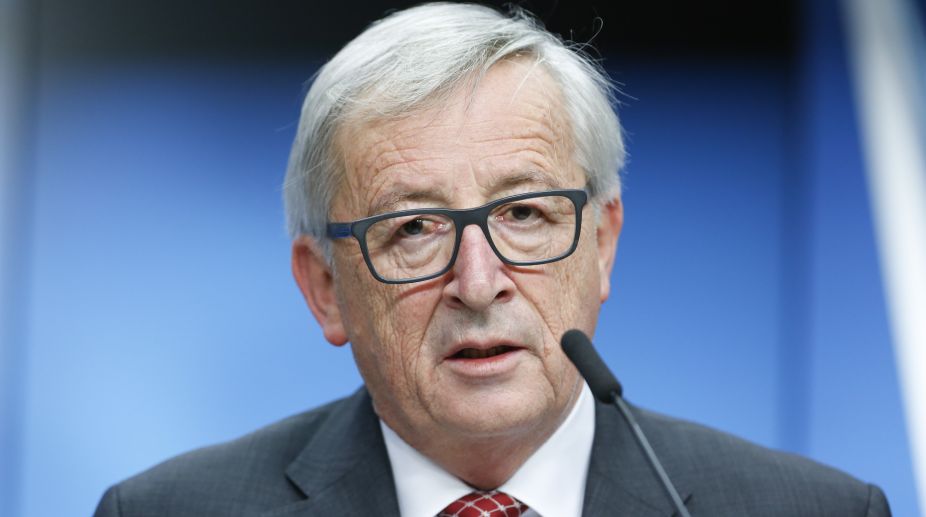The President of the European Commission on Wednesday said he would like Britain to re-join the EU after Brexit — using the little-known treaty clause “Article 49”.
Speaking at the European Parliament in Strasbourg, France, Jean-Claude Juncker said “the exit of Britain is a catastrophe” and suggested that he would like Britain to stay, the Independent reported.
But Juncker added for the first time in public that even once Britain had left, it could still change its mind and return to the bloc by invoking another treaty clause.
“Even if the British leave according to Article 50, then Article 49 would allow them to accede again. And I would be happy to facilitate that. I would not want to push anyone into a corner,” he said.
Juncker had endorsed a statement by European Council President Donald Tusk suggesting that Britain could still “change its mind” to leave, telling the British people that “our hearts are open to you”.
“Tusk and I once again reached out to the British government and said that if the British people, the British Parliament, the British government, wish for another way than Brexit, we would be prepared to discuss it. We are not throwing out the British, we want them to stay,” he said.
Calls for a second referendum on the country’s imminent departure from the EU have grown and even Nigel Farage, the leader of the United Kingdom Independence Party (UKIP) and primary standard-bearer for Brexit, said that a new vote would be useful.
Farage said that another Brexit referendum would reinforce the pro-Leave position in a country split in half, but Remain backers said support for their position had grown and welcomed a call they believed could halt Brexit.
The lower chamber of the UK Parliament was due to vote late in the day on the Great Repeal Bill, which seeks to transfer EU laws into British legislation.
In March 2017, Prime Minister Theresa May triggered Article 50 of the Treaty of the EU, formally beginning the two-year legal process of Britain’s exit, which is set to conclude in March 2019.
Article 49 is the normal way for a European country to join the union — a process that normally takes years. Any new member state requires the unanimous consent of the 27 member states on the European Council, the consent of the European Parliament and consultation with the Commission.











